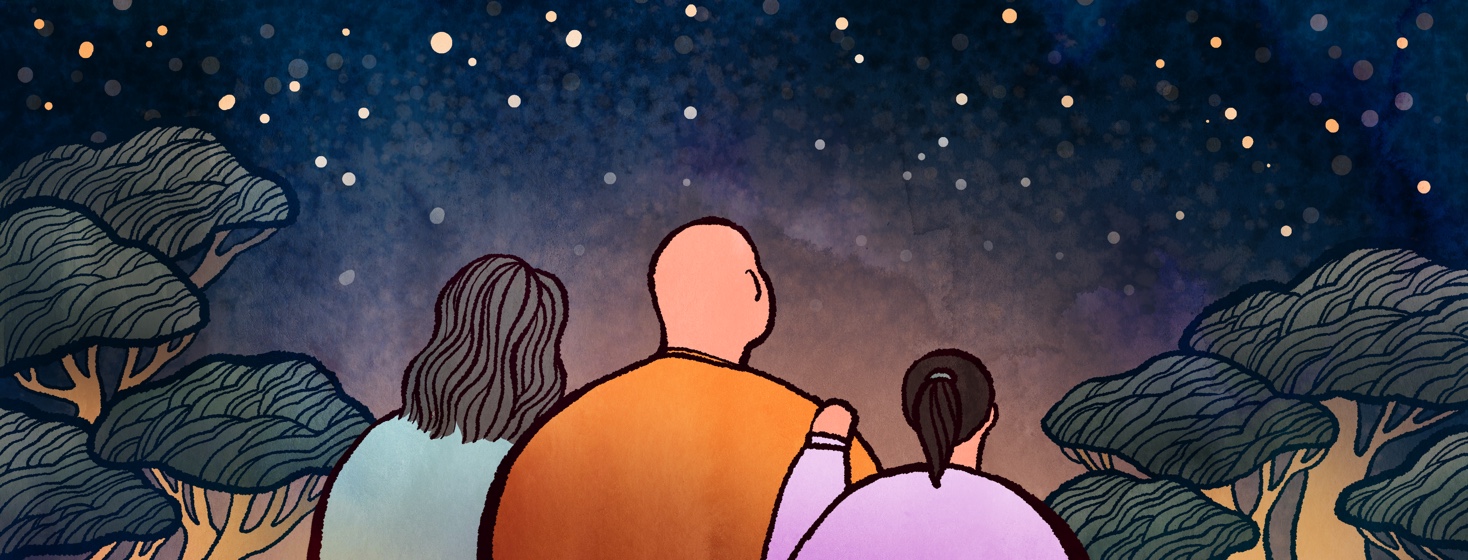How Does Your Partner Understand Your Prostate Cancer?
If you’re a writer on this website, you occasionally get helpful article ideas from our Editors. I think of them as friendly Collie dogs keeping us on the straight and narrow; jostling us to keep relevant and on point.
Such an email dropped a couple of weeks ago with the following suggestions:
- Moving through the stages of grief with cancer
- It’s okay to have a bad day
- Prostate cancer medical terms everyone should be fimiliar with
- How does your partner understand your prostate cancer?
Sharing the bad news
It was the last one that caught my attention. When I was diagnosed my wife and I sat together when I got the bad news. Even though I kind of knew it was coming, the fact that I had an unwelcomed guest loitering with intent in my prostate was still a shock. I’m a fairly stoic individual who has not, shall we say, led a sheltered life, but I actually thought I might pass put. I broke into a muck sweat, felt dizzy, and lay down.
When I got home, I knew I had to tell my 14-year-old daughter the bad news but was at a loss as to how to begin. Finally, I said I had a problem, but it had been caught early and my prospects were good. To which she replied: 'Well at least it’s not cancer'.
Family dynamics with teenage daughter
While this conversation was going on my wife was in the kitchen, but we had eye contact. A kind of silent telepathy (is there any other kind?) passed between us with me asking if I should I tell my daughter I had cancer with Mrs. Preen saying in no uncertain but unspoken terms yes you must. Subsequently, the Daughter seems to have taken Daddy’s cancer in her stride, while I do my best to be upbeat and positive.
We are a talkative, combative family, and with the daughter (16) studying politics, I sometimes think the roof is going to come off. There are very few topics we don’t discuss and right now I’m pretty pleased that my cancer is pushed to the back of the line, usually to re-emerge when an appointment with the oncologist is imminent.
What if your corner is empty?
But to take you back to our Editors’ suggestion: How does your partner understand your prostate cancer? It got me thinking: What if you don’t have a partner? How do you navigate your way through the cancer labyrinth? The treatments, the side effects, the crushing disappointments when your PSA takes an upward jump and you take a downward slump?
And on a day-to-day level, you might need help getting to the hospital or could use someone to do the shopping. Cancer can open up a landscape of emotional and practical problems. I have my wife, daughter, and dog in my corner, but what if your corner is empty? Does it make you want to throw in the towel?
Prostate cancer stats
I’ve been looking at some prostate cancer stats; how many of us will get it and when:
- 1 in 456 men under age 50
- 1 in 54 for ages 50 to 59
- 1 in 19 for ages 60 to 69
- 1 in 11 for men 70 and older1
Loneliness is a symptom of living
Largely it’s an old dude’s disease and to put it bluntly, with age comes death. Partners may leave or not last the course and we all know that loneliness in old age is common. I’m 66 and the rollcall has started. Hey, Keith, it’s been a while. JP, how I miss your nonsense and your paintings, though I’m actually looking at one in my office right now. I know that the unloved list is set to grow and one of these days I’ll be top of the chart.
There is, of course, another side to this. Many men live alone or are single.
Some will not want support and will prefer to deal with their malignant intruder on their own terms. There are stories of married men who choose not to tell their spouses they have cancer. Many will be fiercely self-reliant and value their independence and will be unused to seeking help from others.
Asking for help is hard
The flip side are those, whether bereaved or living alone through choice, who crave company; want a shoulder to cry on and perhaps someone to cook them a tasty meal. For those who are used to living alone, asking for any kind of help can seem a stretch.
Like many people I have family and friends who I see on social occasions and expect from them: friendship, humor, and love. It may be time to ask for a little more.
Yearning for companionship
Solace can also be found in groups of like-minded people. Do you play a musical instrument or sing, do you love reading? Did you use to enjoy yoga? There are choirs, book clubs and exercise classes, to name but a few, waiting for you to get in touch. Companionship can be found in something as simple as a shared hobby.
Cancer messes with your brain almost as much as it does with your body. It may be tough to show your vulnerability, to say ‘look at me I have cancer, I need someone to walk beside me’. There are people out there just waiting to be asked.
The little things
To close on a positive note, as I always try to, I just read Walter Cronkite’s three rules for old men, which I’m pretty sure he never broadcast on-air: ‘Never trust a fart. Never pass up a drink. Never ignore an erection.’ For those of us on hormone therapy, number three would be a fine thing.

Join the conversation